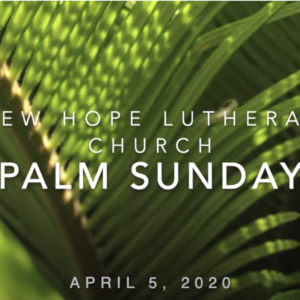Matthew 21:1-11
1 When Jesus and his disciples had come near Jerusalem and had reached Bethphage, at the Mount of Olives, Jesus sent two of his disciples, 2 saying to them, “Go into the village ahead of you, and immediately you will find a donkey tied, and a colt with her; untie them both and bring them to me. 3 If anyone says anything to you, just say this, ‘The Lord needs them.’ And they will be sent immediately.” 4 This took place to fulfill what had been spoken through the prophet Zechariah, saying,
5 “Tell the daughter of Zion,
Look, your king is coming to you,
humble, and mounted on a donkey,
and on a colt, the foal of a donkey.”
6 The disciples went and did as Jesus had directed them; 7 they brought the donkey and the colt, and put their cloaks on them, and Jesus sat on them. 8 And a very large crowd spread their cloaks on the road, and others cut branches from the trees and spread them on the road. 9 The crowds that went ahead of Jesus and that followed were shouting,
“Hosanna to the Son of David!
Blessed is the one who comes in the name of the Lord!
Hosanna in the highest heaven!”
10 When Jesus entered Jerusalem, the whole city was in turmoil, asking, “Who is this?” 11 The crowds were saying, “This is the prophet Jesus from Nazareth in the Galilee.”
—————
Please pray with me this morning, church:
Holy God,
As we conclude our Lenten pilgrimage
And begin our journey through Holy Week
Go with us. Be our companion.
Walk with us through these abnormal days.
Amen.
—————
Welcome to Holy Week, friends.
A week unlike any other in the life of the church. The most important week in the life of a Christian. And…in this time of a pandemic, truly a week that we’ve never experienced in this way before.
The thing is, I’m not exactly sure how to do this Holy Week… See, Holy Week—Palm Sunday, Maundy Thursday, Good Friday, the Great Vigil of Easter, and finally that glorious Easter Sunday—the point of Holy Week is to gather together. And not just to gather together, but to experience these liturgies together. The worship services of Holy Week and Easter are so tactile and experiential…they’re meant to be a feast for our senses. The reason we pack all these worship services into an 8-day stretch is so that we tell the old, old story together…so that we hear the familiar story in new ways…so that we enter once again into God’s story and find ourselves changed and transformed by it.
Because the truth is, we’re not the same person year after year, so even though the story stays the same, we’re the ones who are different, so we hear and we experience and we’re changed by the story in new ways.
But what to do in a year and a time that is so far outside the lines of what anyone reasonable might consider to be “normal”…? How can we experience these worship services, when part of what’s keeping us safe from the spread of this virus is a limitation on what we can truly experience together? How can we hear and experience and be transformed by the familiar old, old story in new ways, when the people we are today, the people experiencing a pandemic, have fundamentally changed…have been so completely altered at our most basic level…? Yes, we’re the ones who are different year after year, but…is this year too different? Have we gone too far beyond the expected rate of change to be impacted by this story this year?
Maybe so. You might feel like this year is just too different, too unusual, that you find it difficult, if not nearly impossible, to enter into this story in a meaningful way this year. Maybe the options for gathering together as the communal, yet physically distant and separated, the body of Christ leave just too much to be desired. Perhaps trying to enter into the story through your device or computer or TV simply doesn’t do it for you.
Look, I get it. There’s nothing about this that feels natural or normal to me. I adore Holy Week. I love the long 8-day trudge through this story because of the commitment it demands. I love that for me to truly grasp the significance of what’s taking place, it requires me to show up every. single. day., to gather together with people whom I love deeply, and viscerally and completely immerse myself in the experience of these holy days.
But I don’t get to do that this year….we don’t get to do that this year.
And honestly I think that’s ok. I’m at peace with this situation.
And actually, I’m beginning to think that the unusual-ness…the abnormality…of this year might be more true to these sacred stories anyway.
Stick with me…the author of the gospel of Matthew has Jesus sending 2 of his disciples to a village to grab a donkey and colt, and then to bring them both back. Then they put their cloaks on the donkey and the colt, and Jesus sits on both of them…and then enters into Jerusalem. The gospel of Matthew is the only one who does this, both Mark and Luke have Jesus riding a much more manageable singular hoofed-creature. The author of Matthew, who’s using the gospel of Mark as a source, misreads or misunderstands the prophet Zechariah, chapter 9, where it says, “Rejoice greatly, O daughter Zion! Shout aloud, O daughter Jerusalem! Lo, your king comes to you; triumphant and victorious, humble and riding on a donkey…on a colt, the foal of a donkey.” Notice there’s no “and” there. Just one donkey. But I do love Matthew’s version because I get to imagine Jesus standing up and donkey surfing during this triumphal entry and parade.
It’s completely absurd. Totally not normal.
But this parade is farcical. It’s mocking the long-established Roman custom of the victorious war hero riding into town on a white horse, flowers and petals and olive branches floating down and flying everywhere, all the townspeople shouting, “Hail, glorious ruler! Praise be to the savior! Praise be to our messiah! Praise to the Caesar, the son of god!”
Jesus’ parade and entry into Jerusalem were a mockery of all of that. Jesus is a different kind of ruler, a different kind of hero…a different Messiah.
Nothing about Jesus’ parade and triumphal entry were normal. In fact, they were backwards, subversive, flipped upside-down.
Very much like I believe many of our lives feel right now…out of sorts, backwards…turned inside-out…flipped upside-down…
This virus is no joke. It’s serious. This time we live in is scary. We’re in need of saving. We’re crying out, reaching out, grasping for something to hold onto, something solid. Grasping for something—anything—to save us.
There are just a handful of words in the gospels that aren’t translated into Greek. They’re words that are untranslated Aramaic, which is likely the language Jesus spoke. Anyway, Hosanna is one of these words. Hosanna is an Aramaic word which means, very literally, “Save us.”
Those people waving palms in Jerusalem weren’t just shouting praises, they were crying out for Jesus to save them. And when Jesus showed them what it would cost them…that the way of following Jesus is the way of giving up your life, of giving of yourself for others, the way of nonviolent resistance, the way of peace…they turned their cries of “Save us!” to shouts of “Crucify!”
Which, for us who sit on this side of Easter…who know that the cross was God’s act of salvation for all of humanity…know that they might have been using different words, but they were still crying out to be saved…
At our most basic and fundamental, we’re still crying out “Save us!” If you’re being honest with yourself, you know you cannot do this on your own.
…And deep in your heart of hearts, you know you don’t have to…
“Behold! Your king—your Savior—comes to you humble and mounted on a donkey…”
Behold…your Savior looks down to you from a cross…
Nothing about this Holy Week feels normal.
Church, it’s not supposed to. Holy Week isn’t normal.
It isn’t normal for us to be proclaiming that our Savior comes to us riding a donkey…or two.
It isn’t normal for us to be insisting that rather than taking the highest place of honor at the table, that our Lord stoops down to wash our feet.
It isn’t normal for us to be looking up to a king who gets lifted high on a cross and crucified.
It isn’t normal for us to be worshiping a Messiah who dies.
It isn’t normal for a Christ who dies to be raised to life.
And yet…that’s precisely what we do.
Every year. Every time we gather, whether together in-person or together online.
We proclaim the absurdly abnormal truth about our God who brings life from things that are dead, and who raises we who are dying to new life…whose intent for us is that we have life, and life abundant.
This Holy Week in a time of pandemic is anything but normal, church.
But that might make it the most true Holy Week any of us have ever experienced.

